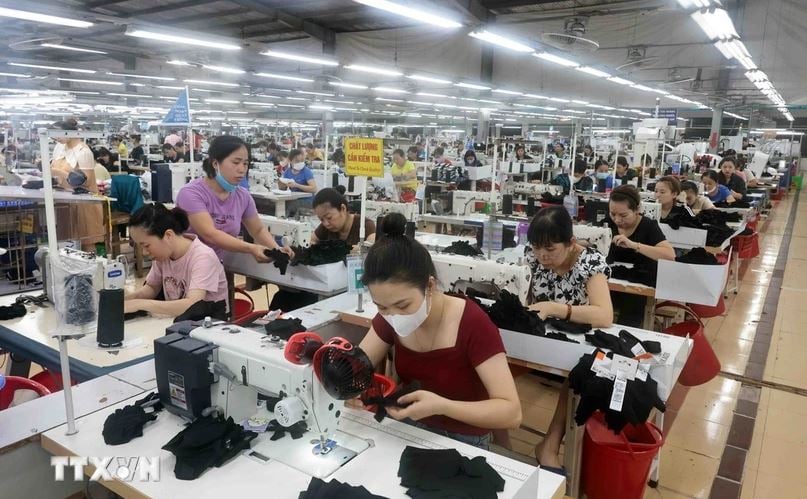 |
| Activities at TNG Thai Nguyen Garment Company. (Photo: Tran Viet/VNA) |
In the context of the global economy facing many challenges and the Vietnamese economy also needing strong boosts, the business community and public opinion have been paying special attention to Resolution No. 68-NQ/TW of the Politburo on private economic development.
A policy that not only provides direction, but is also seen as a clearer and more specific commitment to the role and development orientation of the private economic sector in the coming period.
From position to motivation
According to Chairman of the Vietnam Federation of Commerce and Industry (VCCI) Pham Tan Cong, according to statistics, Vietnam currently has more than 940,000 operating enterprises; of which, nearly 97% are micro and small enterprises.
Despite its modest scale, this force has been creating a large number of jobs, diversifying products and services, meeting market demand, and making an increasingly large contribution to GDP as well as the State budget.
Resolution No. 68-NQ/TW of the Politburo has officially elevated the role of the private economic sector to a new position.
The resolution not only affirms that the private economy is an important driving force of the economy, but also the "most important driving force" and "the pioneering force contributing to the successful implementation of Resolution No. 57-NQ/TW of the Politburo."
This is a worthy recognition for the tireless efforts, creativity and excellent adaptability of the private business community over the years, the head of VCCI emphasized.
Mr. Ngo Tien Dat, Director of Tien Dat Investment Trading Production Joint Stock Company - specializing in manufacturing interior and exterior decorative wooden furniture, said that from a small carpentry workshop with a few workers, the business had to explore and find its own way to survive and develop. There were times when the difficulties seemed insurmountable.
Now that the State has issued important Resolutions such as 68-NQ/TW, affirming the role of the private business community as the most important driving force, the company truly feels recognized, has more confidence and motivation to continue to reach further.
Resolution 68-NQ/TW not only affirms the position, but is also a strategic map with ambitious goals, showing Vietnam's great aspiration to turn the private economy into a true "eagle" in the international arena.
According to the resolution's goal, by 2030, the private economy strives to achieve an average growth rate of about 10-12% per year, higher than the general growth rate of the economy.
This sector is expected to contribute about 55-58% of GDP and about 35-40% of total state budget revenue.
In terms of quantity, Vietnam strives to have 2 million enterprises operating in the economy, equivalent to 20 enterprises/1,000 people. In particular, there will be at least 20 large private sector enterprises participating in the global value chain.
The vision to 2045 is even stronger: Vietnam's private economy will develop rapidly, strongly, sustainably, proactively participate in the global production and supply chain; have high competitiveness in the region and internationally.
By that time, strive to have at least 3 million operating enterprises, contributing about 60% of GDP.
These are ambitious numbers but also demonstrate the Party and State's absolute confidence in the internal potential of the private economy.
Dr. Le Duy Binh, Director of Economica Vietnam, a financial economist with many years of research on businesses, analyzed that out of about one million businesses in operation, nearly 97% are micro and small businesses.
Medium-sized enterprises are still very modest, only about 1.5%. The absence of medium-sized enterprises shows a gap in the growth process of small businesses.
Resolution 68-NQ/TW correctly identified the problem and set the goal of forming and rapidly developing medium-sized private enterprises, considering them an important reserve force that will develop into large enterprises in the medium term, supporting the "leading cranes" and improving the overall competitiveness of the economy.
The lack of medium-sized enterprises reflects the fact that not many small enterprises have the capacity, motivation and ambition to grow. This is due to internal operational efficiency limitations and difficulties from the external business environment.
Resolution 68-NQ/TW is the overall "medicine" that overcomes those limitations with many synchronous solutions.
Inspire the entrepreneurial spirit
One of the most important solutions in Resolution 68-NQ/TW is the rapid formation and development of large and medium-sized private enterprises and regional and global private corporations. This is the concretization of the policy of nurturing the "leading cranes" of the economy.
Promoting small businesses to grow into medium-sized enterprises will create a solid "middle class" of enterprises, supplementing the team of large enterprises and corporations, contributing to improving the competitiveness of an independent and autonomous market economy.
In particular, Resolution 68-NQ/TW emphasized nurturing the entrepreneurial spirit to thereby activate the enormous potential of the private economic sector.
This is concretized by further strengthening the right to freedom of business; businesses are truly allowed to freely do things that are not prohibited by law.
This is an extremely strong message, dispelling concerns about "forbidden zones," creating a solid foundation for the property rights and freedom of business of people and businesses to continue to be affirmed and protected.
In addition, the management method of the management agency will be based on principles and market tools rather than administrative decisions.
This means that the State will minimize direct intervention in production and business activities, creating a fair and transparent competitive environment, so that businesses can be more autonomous in their decisions.
Ms. Nguyen Thi Bich Lien, Director of a green technology startup, expressed her excitement that as a young business, the most important thing is a transparent, stable and predictable business environment.
Resolution 68-NQ/TW with its policies on freedom of business and reducing administrative intervention is truly a breath of fresh air.
Businesses feel empowered and trusted to boldly invest and innovate without worrying too much about administrative barriers or policy inconsistencies.
With the clear foundations and directions from Resolution 68-NQ/TW, the spirit of the Vietnamese business community is being strongly encouraged by facilitating the transformation of major policies into concrete actions, creating breakthroughs in practice. Accordingly, businesses need to boldly invest in new technologies, innovate production processes, improve product and service quality to meet the requirements of domestic and international markets.
At the same time, business development is not only about expanding scale but also about improving operational efficiency, financial transparency, and building a high-quality workforce.
The private economy needs to be associated with social responsibility, environmental protection, and contribution to the common development of the community. This is also an inevitable trend to participate in global value chains.
Enterprises, especially small and medium enterprises, need to proactively connect with each other, participate in supply chains led by large enterprises, creating a combined strength...
According to Mr. Truong Gia Binh, Chairman of the Vietnam Software and Information Technology Services Association (VINASA), the spirit of Vietnamese enterprises is not afraid of difficulties or hardships.
Now, with the 'unleashing' and encouragement from Resolution 68-NQ/TW of the Politburo, the business community has more confidence and motivation to reach out to the ocean.
It is important that each enterprise must be aware of its own responsibility, not only to enrich itself but also to contribute to building the country. "Let's turn the Resolution into action together, so that the private economy can truly be the 'backbone' of the Vietnamese economy."./.
Source: https://huengaynay.vn/kinh-te/nghi-quyet-so-68-cu-hich-khoi-nguon-suc-manh-doanh-nghiep-viet-155193.html




![[Photo] Brilliant red of the exhibition 95 years of the Party Flag lighting the way before the opening](https://vphoto.vietnam.vn/thumb/1200x675/vietnam/resource/IMAGE/2025/8/27/e19d957d17f649648ca14ce6cc4d8dd4)


![[Photo] Many people eagerly await the preliminary review despite heavy rain](https://vphoto.vietnam.vn/thumb/1200x675/vietnam/resource/IMAGE/2025/8/27/4dc782c65c1244b196890448bafa9b69)
![[Photo] Prime Minister Pham Minh Chinh chairs meeting of National Steering Committee on International Integration](https://vphoto.vietnam.vn/thumb/1200x675/vietnam/resource/IMAGE/2025/8/26/9d34a506f9fb42ac90a48179fc89abb3)











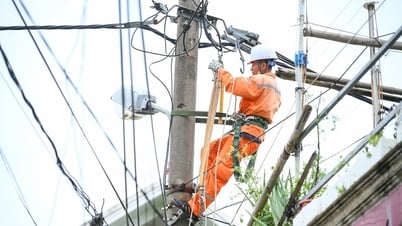



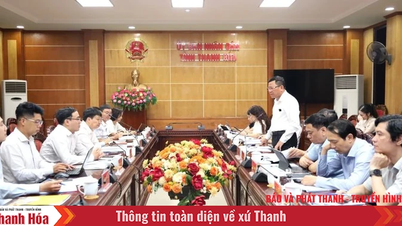







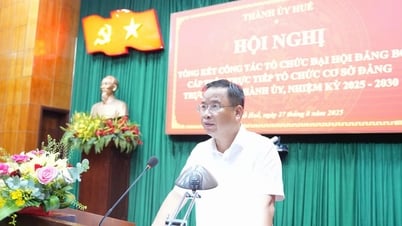


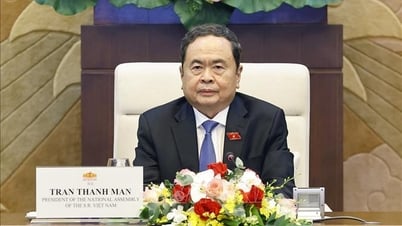
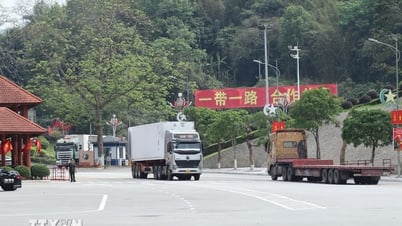





























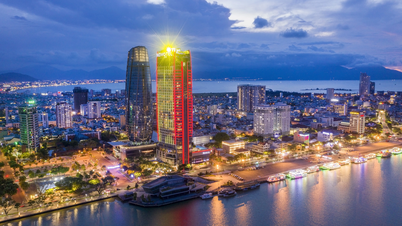


![[Photo] General Secretary To Lam attends Meeting with generations of National Assembly deputies](https://vphoto.vietnam.vn/thumb/402x226/vietnam/resource/IMAGE/2025/8/27/a79fc06e4aa744c9a4b7fa7dfef8a266)


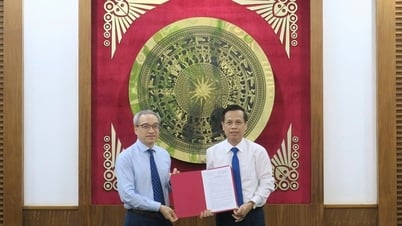
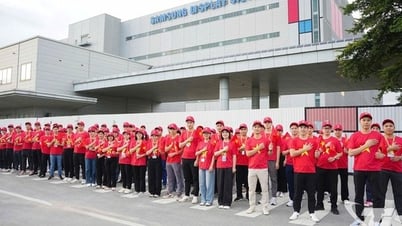
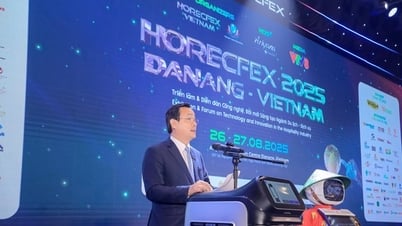









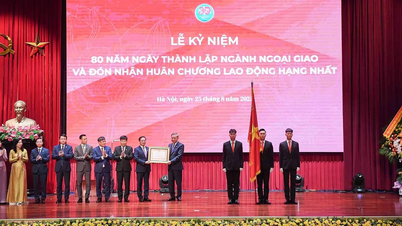
















Comment (0)